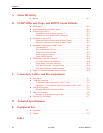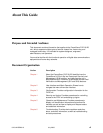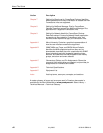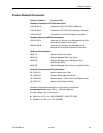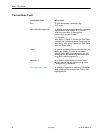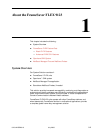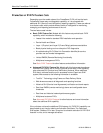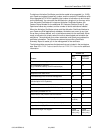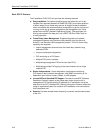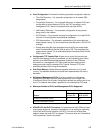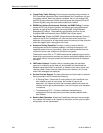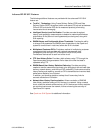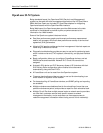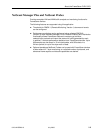
About the FrameSaver FLEX 9123
1-4
9123-A2-GB20-10
July 2000
Basic FLEX Features
The FrameSaver FLEX 9123 unit provides the following features:
H Easy Installation. Provides a simplified menu that allows the unit to be
installed like a standard leased-line SNMP DSU/CSU, and allows selection
of either leased line or frame relay service. A straight-forward installation
menu is available that requires minimal configuration to get the unit up and
running, and to set up remote configuration and management via Telnet
access from the NOC (Network Operations Center). Test equipment can
then be connected to the data port, and a BERT (Bit Error Rate Test) run
to verify operation.
H Frame Relay Aware Management. Supports diagnostic and network
management features over the frame relay network using the Annex-A,
Annex-D, and Standard LMI management protocol. The unit’s frame relay
capability also supports:
— Inband management channels over the frame relay network using
dedicated PVCs.
— Unique nondisruptive diagnostics.
— CIR monitoring on a PVC basis.
— Multiple PVCs on an interface.
— Multiplexing management PVCs with user data PVCs.
— Multiplexing multiple PVCs going to the same location onto a single
network PVC.
H Router-Independence. Unique diagnostics, performance monitoring,
PVC-based in-band network management, and SNMP connectivity is not
dependent upon external routers, cables, or LAN adapters.
H Inverse ARP and Standard RIP Support. Provides Inverse ARP (Address
Resolution Protocol) support so the frame relay router at one end of a
management PVC can acquire the IP address of a FrameSaver unit at the
other end of the PVC. Standard RIP (Routing Information Protocol) allows the
router to automatically learn the routes to all FrameSaver units connected to
that FrameSaver unit.
H Security. Provides multiple levels of security to prevent unauthorized access
to the unit.



